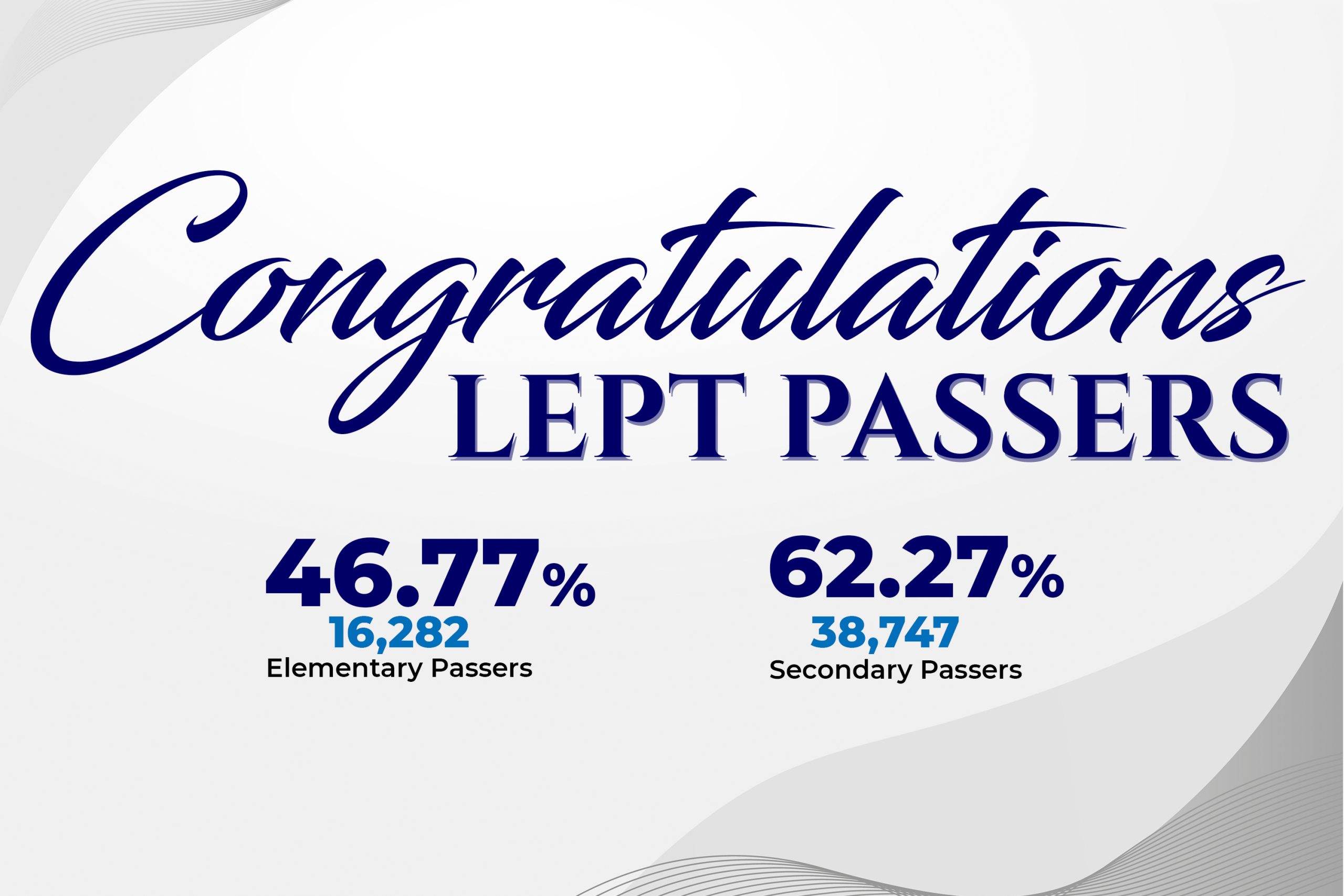
The Teacher Education Council (TEC) congratulates over 55,000 successful passers of the March 2025 Licensure Examination for Professional Teachers (LEPT). These aspiring educators will form part of the country’s future teaching professionals. The Professional Regulation Commission (PRC) reported on Friday that 16,282 elementary teachers out of 34,810 examinees (46.77%) and 38,747 secondary teachers out of 62,225 examinees (62.27%) passed the LEPT.
At the elementary level, a 6.01% improvement was recorded over two years. The passing rate rose from 40.76% in March 2023 to 46.67% in March 2024, and slightly increased to 46.77% in March 2025. The same trend is observed at the secondary level with a 15.33% increase. From 46.94% passing rate in March 2023, it climbed to 58.78% in March 2024, and reached 62.27% in March 2025.
These statistics show progress in passing rates at both levels over the past three years. But while they initially suggest a positive trend, they also raise a pressing concern—more than 53% of elementary examinees and over 37% of secondary examinees did not pass the exam.
It raises an important question on why many examinees still fail.
The TEC recognizes that various factors impact LEPT outcomes. Among these, the role of Teacher Education Institutions (TEIs) to deliver quality training to pre-service teachers is the most crucial. These institutions are primarily responsible for providing high-quality training to produce well-prepared, licensed teachers who can positively impact the education system. Consequently, trends in instructional delivery and curriculum alignment likewise affect the direction of teacher preparation. When the curriculum is misaligned with licensure standards or classroom realities, it creates gaps in knowledge and skills that can hinder examinees’ performance.
Further, dialogues among education leaders and stakeholders also suggest that the structure and content of the licensure exam itself have an impact on performance.
Understanding both the progress and the persistent challenges is essential. Only by addressing the reasons behind both the improving passing rates and the still-high failure rates can the education sector ensure a more robust and equitable pathway to the teaching profession.
Partners in teacher education reform have been working together to achieve this. For instance, initiatives to upskill and reskill TEI faculty are in the pipeline for TEC member agencies. TEC upholds that investing in teacher educators’ professional growth ensures that instructional practices within TEIs remain at the forefront of innovation.
The TEC, for its part, continues to work with stakeholders in ensuring curriculum relevance and alignment with national and global standards, particularly the Philippine Professional Standards for Teachers (PPST). Additionally, TEC is working with member agencies to develop specialized licensure that reflects the current teacher education curriculum.
The Council anticipates that dedicated licensure exams for graduates of Bachelor of Early Childhood Education (BECEd), Bachelor of Special Needs Education (BSNEd), Bachelor of Technical-Vocational Teacher Education (BTVTEd), Bachelor of Physical Education (BPEd), and Bachelor of Culture and Arts Education (BCAEd) will be ready by September 2025.
As TEC encourages the new teaching workforce to pursue careers in teaching professions, it reaffirms a commitment to enhancing teacher quality and ensuring every learner benefits from highly competent and professionally prepared teachers.


